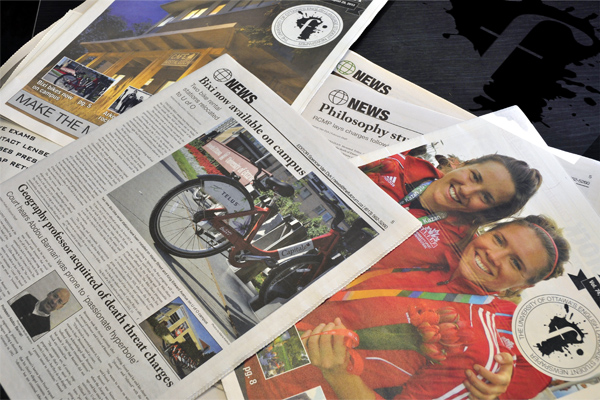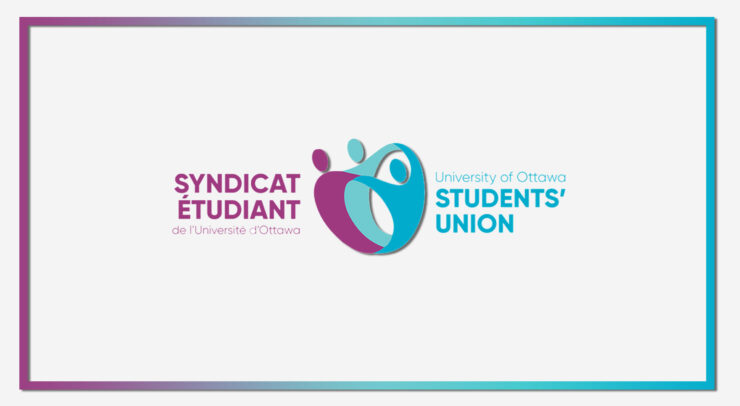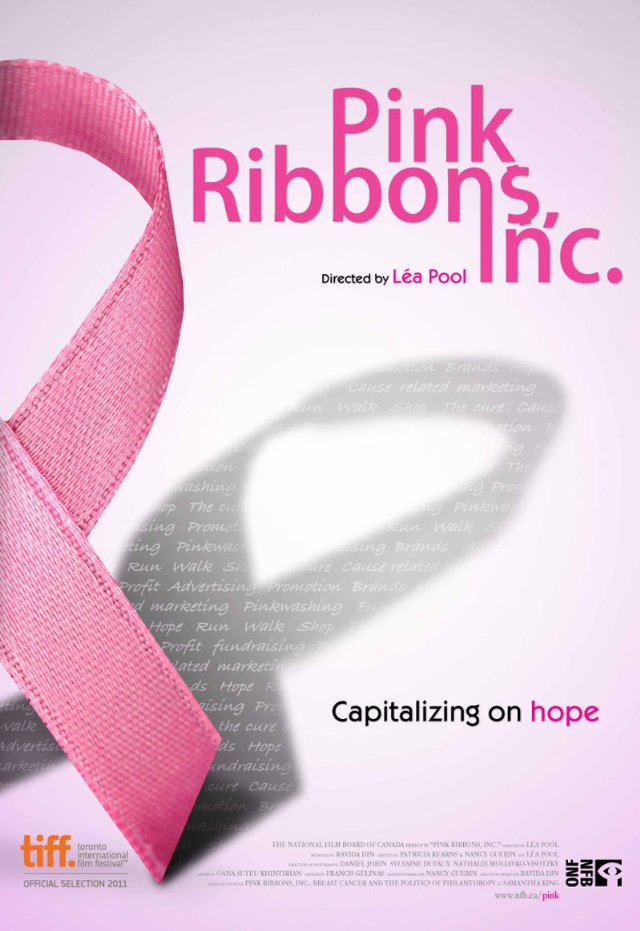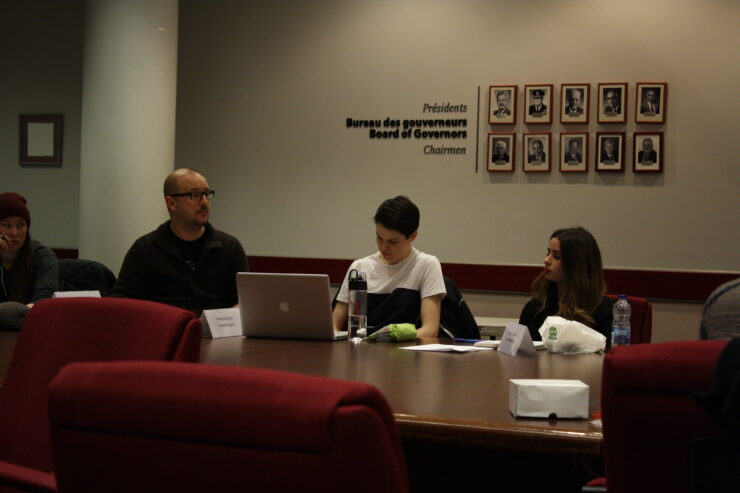The General Assembly referendum took place alongside the general elections. With 69 per cent in favour, student voters at the University of Ottawa ushered in the GA as the highest decision-making body of the student federation.
Their implementation will mean any undergraduate student at the U of O who attends the GAs will have a say in SFUO decisions. It may also mean a major change in the role and/or operation of the Board of Administration (BOA).
“After talking about GAs a lot over the last few months, I’m very excited students are on board with giving them a shot,” Roy said.
Alex Boettger, a BOA member for the Faculty of Arts, led the formalized campaign against GAs because he believes 400 people still don’t represent the other thousands of students at the U of O.
In an interview with the Fulcrum prior to the election, Boettger also said the feasibility and fiscal costs of implementing GAs are a concern.
“It’ll be hard to mobilize students and there aren’t that many spaces that can accommodate these students,” he said.
The GA referendum was introduced in November by the Revolutionary Student Movement (RSM), known then as the Marxist Students’ Association, but it failed the first time around because it didn’t meet quorum.
Jean-Philippe Ouellet, spokesperson for the RSM, said during the Feb. 4 election debate that a lack of student awareness led to its failure. Roy said bad weather and cancelled classes may have also contributed to the low turnout. Others, particularly some members of the Board of Administration (BOA), said its initial failure was a good indication that a GA was not the right way to go.
Voter turnout for the general elections may have been 11.6 per cent, but voters in the referendum accounted for only 9.1 per cent. The lower number of referendum voters is due in part to an error in the voting form.
The original ballot referred to the GA as the highest decision-making body “with control of, but limited to, finances, elections, by-laws, and policies of the SFUO,” when it should have read “not limited to.” The error was only noticed Tuesday afternoon, the first day of voting. It was corrected with a separate yellow sheet for the referendum question, but the referendum responses from those who voted before that time were not counted.
That meant about 700 referendum votes were not considered valid, according to Christine Kiki Lefebvre, one of the scrutineers. However, considering the votes in favour outnumbered those opposed by more than 1,000, the 700 missed votes would not have made a difference in the result.
“Once results were tabulated, the void ballots did not offset the tally,” said chief electoral officer Melanie Large. “This means that even if included, the results would not have changed.”
Roy said she has already been thinking about the logistical ways in which to implement the GAs, as there is no room big enough on campus to hold 400 students.
“I think we can get very creative with options either on campus or at least near campus,” she said. “I’ve seen a lot of different systems using technology, different rooms, and even the Convention Centre near campus. There are a lot of possibilities we can look into.”
The referendum to allow international development and globalization students to separate from the Political, International, and Development Studies Student Association (PIDSSA) and form a new association passed with 79 per cent of about 200 voters in favour.
—With files from Sofia Hashi





